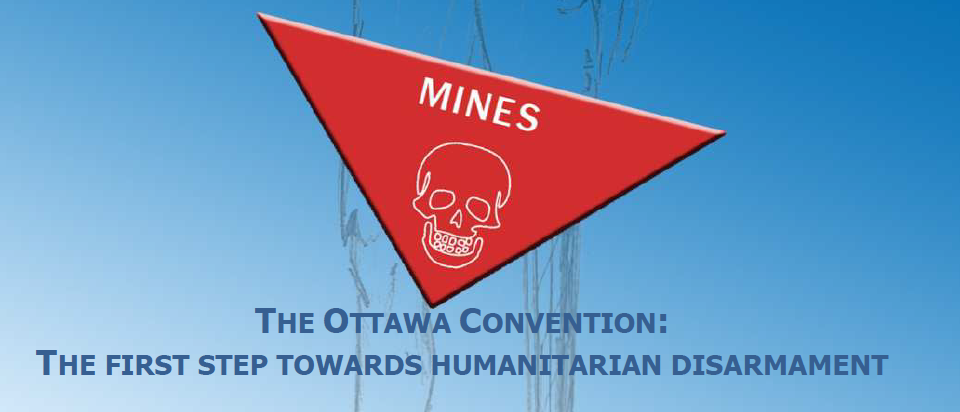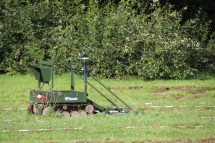The Ottawa Convention: the first step towards humanitarian disarmament
The Royal Higher Institute for Defence in close cooperation with the Belgian Federal Public Service of Foreign Affairs, Foreign Trade and Development Cooperation and United Nations Brussels are organising the colloquium 'The Ottawa Convention: the first step towards humanitarian disarmament'.
This colloquium will take place on Thursday, 28 March 2013 at 14:00 hours in the conference centre of the Campus Renaissance (entrance: Rue Hobbema 8, 1000 Brussels). The lecture will be given in English with simultaneous translation into French and Dutch. We kindly ask you to confirm your participation before Monday, 25 March 2013 by sending the completed reply form by e-mail to symposium.rhid@mil.be or by fax to +32 2 742 69 57.
14.00 – 14.45: Registration and coffee, seats taken at 14.45
15.00 – 15.02: Welcome address
Colonel Corinne FAUT
Director-General of the Royal Higher Institute for Defence
15.02 – 15.05: Introduction
Mr Pieter DE CREM
Belgian Deputy Prime Minister and Minister of Defence
15.05 – 15.15: Keynote speech
Mr Didier REYNDERS
Belgian Deputy Prime Minister and Minister of Foreign Affairs, Foreign Trade and European affairs
Panel 1: The spirit of Ottawa and its significance for Humanitarian Disarmament
15.15 – 15.30: Ms Agnès MARCAILLOU
Director of the United Nations Mine Action Service (UNMAS)
15.30 – 15.40: Ms Nicole HOGG
Legal advisor, Arms Unit, International Committee of the Red Cross (ICRC)
15.40 – 15.50: Ms Sylvie BRIGOT-VILAIN
Executive Director, International Campaign to Ban the Landmines – Cluster Munitions Coalition
(ICBL – CMC)
15.50 – 16.15: Panel discussion
Moderator:
Major Lode DEWAEGHENEIRE
Coordinator for National Reporting and Information Exchange under the Ottawa Convention, Cell Weapons Treaties and Arms Control, Strategy Department, Belgian Defence
16.15 – 16.30: Coffee/Tea time
Panel 2: Mine action on the ground: placing the people in the centre
16.30 – 16.40: Lieutenant-Colonel Peter Philipsen
Commanding Officer of the 11th Engineer Battalion, Former Belgian National Contingent Commander UNIFIL and former Staff Officer Demining UNIFIL headquarter
16.40 – 16.50: Mr Umedjon NAIMOV
Ban Advocate, mine survivor from Tajikistan assisted by Ms Hildegarde VANSINTJAN
Advocacy Officer, Handicap International
16.50 – 17.00: Mr Kerry BRINKERT
Director, Implementation Support Unit (ISU) of the Ottawa Convention
17.00 – 17.15: Panel discussion
Moderator:
Lieutenant-Colonel Jean-Albert LEGROS
Director of the Centre for Security and Defence Studies, Royal Higher Institute for Defence
17.15 – 17.20: Closing remarks
Mr Yvan BAUDOIN
Professor Emeritus, Royal Military Academy




